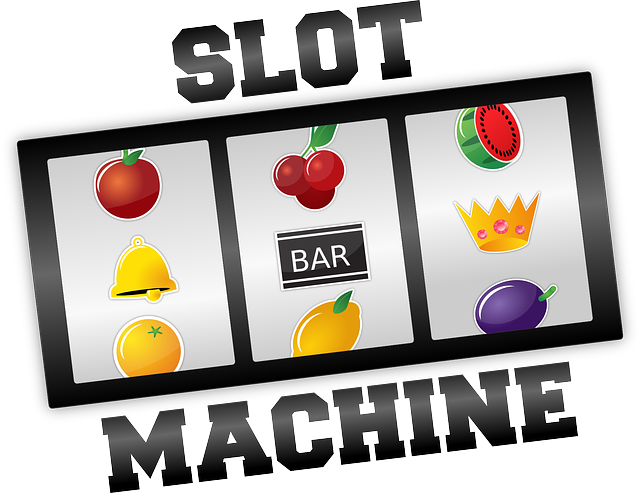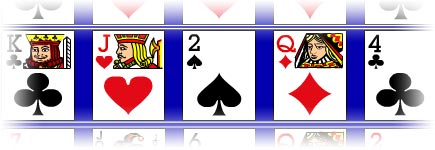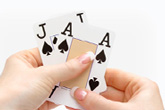Once upon a time there were two gamblers who both believed in fairy tales and betting systems. They met at a high stakes Craps table.
“How you been doing?” said one.
“Terrible,” said the other. “Now according to my betting system, I’ve got to put a thousand dollars on the Pass line. This is the end of the progression, the ultimate bet. But according to the book, this only happens once in a blue moon, so it can’t possibly fail.”
“That’s funny,” said the other. “We must have read the same book. I’m in exactly the same situation, except I’m betting on Don’t Pass…”
If you have a favorite betting system, and you think that some variation of this story couldn’t apply to you, please think again.
Why Betting Systems Don’t Work – The Law of Independent Events.
Most gambling games are composed of random “independent events.” You might flip a coin and get “heads” a hundred times in a row. You then might assume you are more likely to get “tails.” But ask yourself this. Does the coin “remember” that it just flipped “heads” a hundred times? Would it matter if you put the coin away for ten years? Would it even matter if you used a different coin? No. Obviously, the chance of the next “heads” is still always 50-50.
How the casino stacks the odds. In a coin toss, because of the law of “independent events,” no betting system can guarantee a win, even though the odds are exactly 50-50. In a casino, there is not even the same chance. In single-zero online Roulette, for every 18 even-money decisions that cause you to win, there are 19 decisions that cause you to lose. I.e., if you bet on black, there are 18 blacks vs. 18 reds plus one “zero.”
In offline roulette, usually it is twice as bad because there are two zeros. It is these “zeros” that cause the casino inevitably to come out ahead. In Craps, if you stick to “Pass” or “Don’t Pass,” there are about 69 ways to win vs. 70 ways to lose. This makes Craps much better than any Roulette—but still on average, “the more you play the more you lose.”
It doesn’t matter if you have lost all day. It doesn’t matter if you have won all day. It doesn’t matter if you bet $5 on the last game, and now bet $500. It doesn’t matter if you have changed tables. In Craps, your chances on that next decision for a line bet always are approximately 69 ways to win vs. 70 ways to lose.
Card Games are Different
Card games are slightly different. The more high or red or even cards are drawn from a deck, the more chances of a low or black or odd card, etc, so long as it is the same deck.
In traditional Blackjack, you can count down the favorable vs. unfavorable cards and even if you do not, on average there is a slightly greater chance of winning after each loss. So long as the deck is not shuffled, a card game is not composed of “independent events.”
However, this is why the deck is never used to the end—and after a new shuffle, there is little if any relationship to all the games that went before. Also, exactly how much you can know by counting the cards is somewhat limited—and in online Blackjack, there is a simulated shuffle after every hand.
Therefore whether online or offline, from one shuffle to another, and usually from one hand to another, for all practical purposes, once again you are playing against “independent events.”
Betting Systems Are Not Helped by Imperfect randomness
If you knew the precise force applied and length of flight time, you might predict a coin toss. Similarly, dice manipulation, “shuffle tracking,” and “wheel timing,” under rare conditions and with great effort, might achieve a bit of predictability for Craps, Blackjack, and Roulette.
In online gambling, hackers sometimes decipher the random generator. Perhaps for a few people, human “intuition” might even achieve such things subconsciously. Even so, however, this does not affect the independence of events.
I.e., in a “ball-and-cup” game, the cup-switcher knows which cup the ball is under. If you are eagle-eyed, perhaps you can know also. However, for those who do not know this, if the ball was last seen under cup no. 1, now is it more likely under cup no. 2? No, this is still an “independent event.” Ten losses in a row still do not make a win more likely. “Imperfect randomness” and “non-independent events” are like apples and oranges. Just because you have one, does not imply that you have the other.
Prominent misconceptions
Here I will refute the most prominent types of incomplete logic often used to promote betting systems.
“If not for table limits, you could keep raising bets until you won.” Baloney. If you lose at a low limit table, you can just move to a high limit table, it doesn’t make any difference and it won’t do you any good. Bunion’s Horseshoe is famed for its no-limit Craps.
One wild gambler almost “took over the casino” through luck and daring. Finally he lost and never won like that again. Then there was the man who “broke the bank at Monte Carlo”—and then went broke himself, trying to do it again.
Casinos place limits on tables, the better to manage these fluctuations of pure chance, and the better to watch for cheating—but not directly to foil systems players.
“Just quit while you are ahead…” Sure that’s fine if you happen to start out winning. However on average, for every 1,000 times that you start out winning, there will be at least 1,010 times that you start out losing. That’s how gambling and the “house advantage” work. On average, the sooner you quit the less you lose so this is good advice. However the best such advice is, “Just don’t gamble,” and this certainly won’t help you to win either!
“Computer analysis proves that if you could always raise your bets one unit until you break even, this would require a huge bankroll but you would win.” Well this was not my computer analysis, which proved the opposite. I even invented an improved variation that raised bets more cautiously according to total net loss.
Does it make sense that Harry should bet $500 when he is only $200 behind—meanwhile Bobby using the same betting system ends up betting $500 when he is $2,000 behind…? When this ambiguity is removed, you actually can play for years with little chance of losing. However as proved by my simulations, you still can lose and it would be quite a lot. Meanwhile even if you win, it would be so little that you would be better off collecting bank interest.
“Watch for the unnatural red-black-black-red pattern, then bet against it happening twice.” I also tested a roulette theory of this type. My long-range simulation results were clearly negative. I then plugged in a record of several thousand decisions from my play at an online casino—and this also was negative.
Then an enthusiast provided me with a record of thousands of non-virtual roulette decisions. The results were positive. If assured of an accurate record, I wouldn’t mind studying this further. However, there was such an extreme scarcity of zero decisions in this record, that it was difficult to believe the record was accurate, even if some “human element” might have a special effect.
“For 20 years I never lost with using these betting systems …” Mathematically speaking, some people must exist who are just plain lucky. Also some when examined closely, periodically break their alleged system according to some “intuitive” guidance—i.e., I have discovered that they are not doing what they say they are doing.
Maybe they have something—but this doesn’t come from the system and doesn’t do you any good. Usually in fact, you eventually will find that the bigger the mouth, the smaller the purse. If they are wealthy, it is more likely from selling the system than from playing with it.
Every day, every casino on earth stakes millions of dollars on the faith that there is no winning system—and they win. There is no doubt about this, so I would suggest that you pay no attention to doubtful anecdotes from systems players.
Why Betting System Might Work for you
Now that I have somewhat debunked the typical systems player, out of fairness I must apply the same criticism to some of the standard anti-systems rhetoric.
Often you will hear that it is “inevitable” that “the odds will kick in” to defeat the player using betting systems. This is just as false as to say it is “inevitable” that you must flip “tails” after seeing a hundred “heads.”
The fact is, it takes at least 100,000 and preferably 500,000 decisions to be certain of achieving “the average.” This is more gambling than most people do in a lifetime.
Even then, you are likely to be inaccurate by several thousand decisions. I.e., out of 200,000 coin tosses, you might see 102,241 heads and 97,759 tails—or vice-versa. These several thousand non-average decisions might never “go away”—even after millions of decisions.
They can remain but simply be overwhelmed by the average until they are relatively insignificant.
It may be good advice to say, “Losing is inevitable,” but strictly speaking this is incorrect. If you only play the better games, such as Craps and Blackjack, then it is inevitable that the vast majority will lose gradually according to the average—it is inevitable that a small minority will lose much faster than average—and it is equally inevitable that another small minority will not lose.
With this understanding and the right betting systems, so long as your luck falls within the average, you actually might convert a lifetime of gradual losing into winning.
To find out more about this topic, you should read the Big Bet Theory.
Source




 Basic strategy will minimize the casino’s advantage in land-based and in online casino blackjack. Below is a ‘universal’ basic strategy, modified very slightly for simplicity. There are more precise variations that require you to change according to the different rules of each casino. However for online blackjack, this is more trouble than it is worth because the improvement in results is not very significant. Print this universal strategy sheet and follow it whenever playing Blackjack at an online casino.
Basic strategy will minimize the casino’s advantage in land-based and in online casino blackjack. Below is a ‘universal’ basic strategy, modified very slightly for simplicity. There are more precise variations that require you to change according to the different rules of each casino. However for online blackjack, this is more trouble than it is worth because the improvement in results is not very significant. Print this universal strategy sheet and follow it whenever playing Blackjack at an online casino.